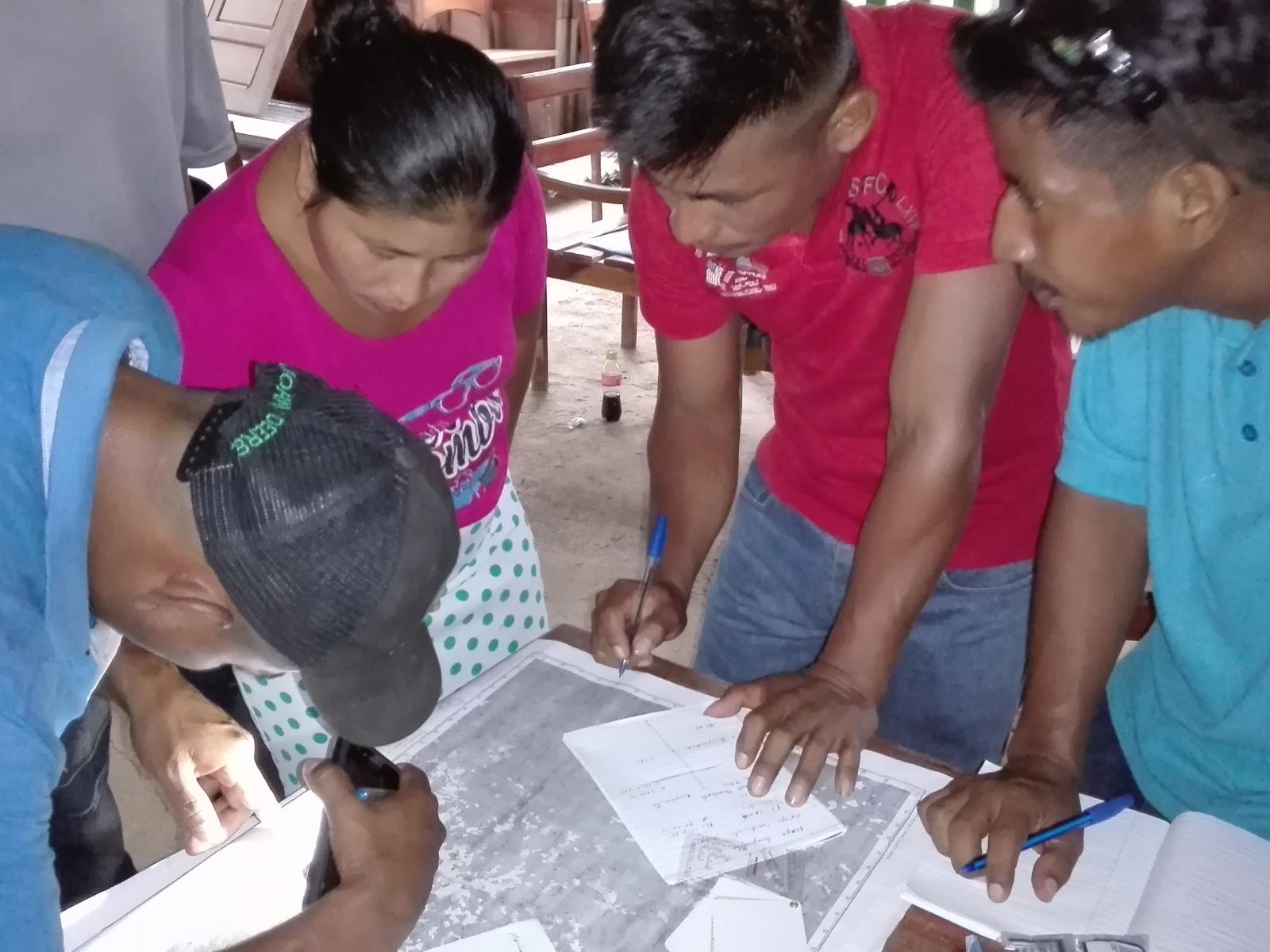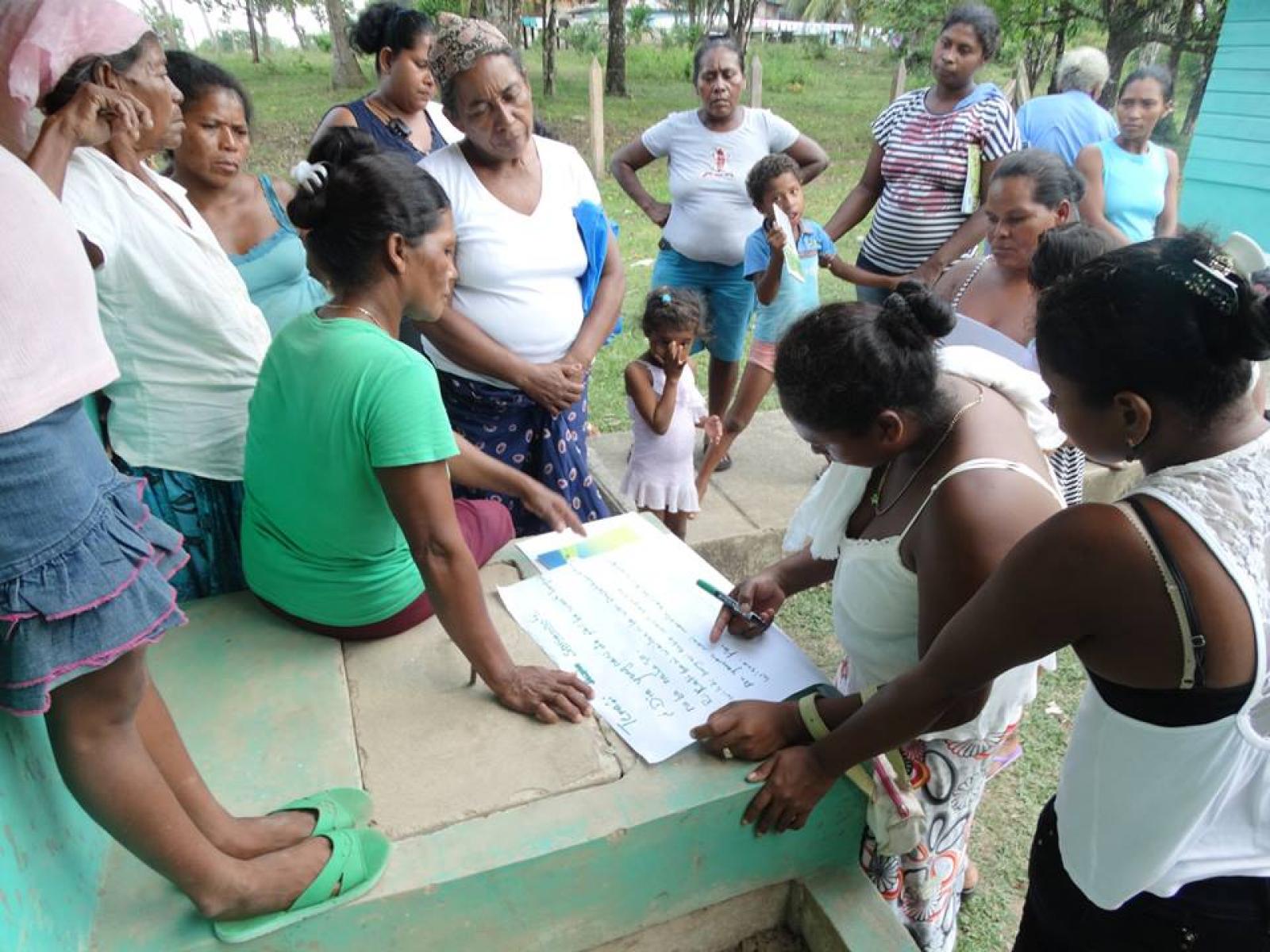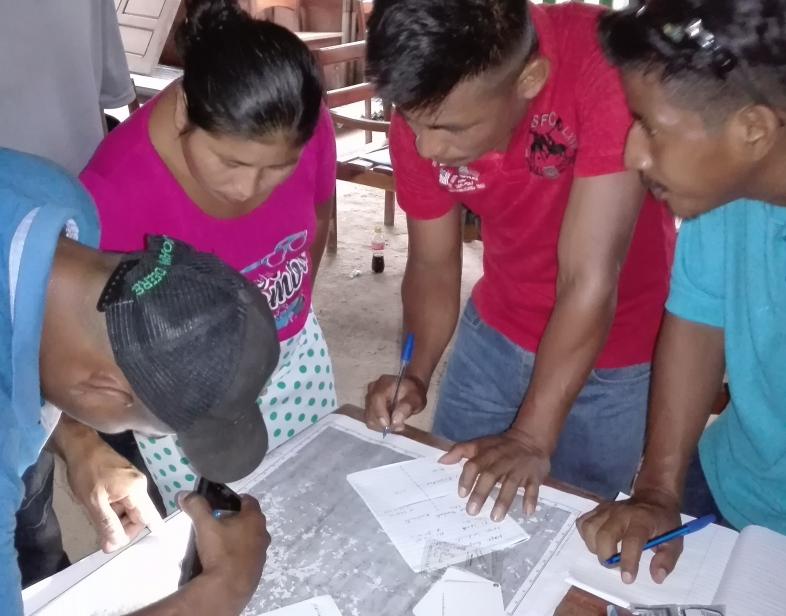An Overview Of Our Solution
Extractive industries continue to threaten the rights of vulnerable groups including indigenous and forest dependent people. Clearing of forest for cattle ranching, monoculture plantations, hydro-electric projects, and mining are among the main causes of deforestation and forest degradation in Mesoamerica. ICCO Cooperation works with the Mesoamerican Alliance of People and Forests, a platform of Indigenous Peoples and forest-dependent organizations located in Mesoamerica. With them, the technical solution includes: to ensure land rights through legal recognition; improvement of monitoring and control systems for land and forests; strengthening of Indigenous Peoples and forest dependent organizations; and strengthening of local human resources, especially youth and women.
- Population Impacted: 600,000 people
- Continent: North America
Context Analysis
Extractive industries continue to threaten the rights of vulnerable groups including indigenous and forest dependent people. Clearing of forest for cattle ranching, monoculture plantations, hydro-electric projects, and mining are among the main causes of deforestation and forest degradation in Mesoamerica. Centralized governmental management models have proved insufficient to stop those threats; there’s lack of political support and there are shortages of financial and technical support for sustainable forest management.
Governments and large producers are mostly responsible for forest destruction in disregard of rights of indigenous and forest communities; leaders and activists are often threatened, jailed or even assassinated. As a counter point, Indigenous and forest dependent people are changing their behaviors to protect and sustainable manage their forests, which has proved effective for natural resource conservation, climate change mitigation, and poverty alleviation.
Describe the technical solution you wanted the target audience to adopt
Considering that most of the remaining forest in Mesoamerica are located in land administered collectively by indigenous peoples and forest communities, it is necessary to promote respect for their rights to land and natural resources, and to support sustainable livelihoods. These communities have deep historical and cultural connection to their land and can help prevent forest destruction, protect biodiversity, and enhance forest carbon stocks, whilst preserving their cultural heritage.
ICCO Cooperation works with the Mesoamerican Alliance of People and Forests, a platform of Indigenous Peoples and forest-dependent organizations located in Mesoamerica. With them, the technical solution includes: to ensure land rights through legal recognition; improvement of monitoring and control systems for land and forests; strengthening of Indigenous Peoples and forest dependent organizations; and strengthening of local human resources, especially youth and women.
Type of intervention
Describe your behavioral intervention
The behavioral intervention depends on the use of the land and natural resources, especially forests and its derivative. At the core of the intervention, there’s a lynchpin to transcend from forest conservation to forest sustainable management, from an indigenous and ancestral forest-dependent communities’ cosmovision. The intervention proposes changes in behaviors at three levels: the most important is 1. locally with Indigenous Peoples and forest-dependent communities to preserve and sustainable manage their forests with strengthened organizations to achieve economic empowerment; nationally by influencing decision makers on the importance to guarantee land rights for those that have been historically guardians of forests, and internationally by influencing organizations and markets on the preservation and sustainable consumption of forests and its derivate as carbon sinks and/or certified wood.
As needed, please explain the type of intervention in more detail
The innovation in the intervention is to transcend a “subsistence” approach to an economic empowerment approach among Indigenous Peoples and forest-dependent communities, once there’s legal recognition of land rights. Stakeholders, including ICCO, have been using social incentives to change norms to influence the adoption of the idea and facts that most forestry area has been preserved due its sustainable management. Nowadays, the intervention is going beyond to increase the demand for forest derivatives and certified wood in certain countries, at some point, using international trade agreements.
Describe your implementation
Activities include: advocacy for the renewal of forestry concessions in the Mayan Reserve Biosphere in Guatemala, clarification of titled land from settlers in the Miskitus territories in Honduras and Nicaragua and the monitoring of land invasions in Costa Rica and Panamá. Also, organizations are participating in lobbying actions with stakeholders related to REDD+ in México, Guatemala and Panama, FLEGT in Honduras, and Law 75 in Panama. All organizations, including the Mesoamerican Alliance are participating in advocacy and lobbying actions related to UNFCC’s COPs. Monitoring and control systems include the use of technologies such as drone surveillance, geo-references, and community land patrols; all of these are included within the communities’ territory management tools. Local organizations are also exchanging information related to REDD+, FLEGT, climate change, and transparency.
Enabling conditions include the alliance with 10 Indigenous Peoples and forest-dependent organizations, a regional platform and non-government organizations, which represent 600,000 people with rights to land of almost 5 million hectares of land.
ICCO is the principal shareholder of Fair Climate Fund, a social for profit entity in The Netherlands investing in community projects that generate certified reductions of carbon emissions (forestry and clean energy) as a way to mitigate climate change and increase incomes at community level from environmental services https://www.youtube.com/watch?v=Nxn0lotSZRg
The main challenges are: a) to assure that each of the governments recognizes, respects and promotes community forest and land rights; b) institutional weaknesses, of the government institutions and also of the indigenous and forest community organizations; c) exercise of rights to land and natural resources through concrete actions has budget implications which are also and obstacle to overtake.
External connections
ICCO works closely with key partners at various levels, including but not limited to the Mesoamerican Alliance of People and Forests and local organizations such as Red MOCAF, A.C. in México, ACOFOP and ANOFCG in Guatemala, MASTA and FEPROAH in Honduras, Gobierno Nación Mayangna and Miskitus Peoples in Nicaragua, RIBCA in Costa Rica and the Congresses Emberá-Wounnan and Guna Yala in Panama. Our allies at the same time have connection with national environment ministries and international organizations such as Forest Farm Facility, Ford Foundation, AIME, Weaving Loops, and European Union. We also have donors such as the Climate and Land Usage Alliance and the European Commission.
Other stakeholders include the Ministry of Foreign Affairs of the Kingdom of The Netherlands through a cooperation agreement “Strategic Partnership: Convening and Convincing”, which aims to strengthen Civil Society in the global South by supporting Lobby and Advocacy issues related to an ever shrinking political space. This 2015-2022 program includes support of actions on land and forest rights by the Mesoamerican Alliance of People and Forests, its member organizations and the political incubation of the Mesoamerican Territorial Fund.
Who adopted the desired behaviors and to what degree?
- At the local level: indigenous and forest-dependent community’s leaders adopted a conservation and sustainable management behaviors. These leaders and their organizations have achieved legal recognition of their lands and now they are changing to preserve and manage their resources, preserve their ecosystem, increase their resilience to the negative impacts of climate change and provide exosystemic services.
- At the national level, decision makers from governments and organizations are recognizing the model for sustainable management of forests in the region, at the same time that there is a shift in power for communities to participate in decision making spaces related to REDD+ and FLEGT.
- At the international level our partners are implementing an advocacy and lobbying strategy to position the conservation and sustainable management of the Mesoamerican forests in the international agenda. One concrete example is the campaign #GuardiansOfTheForests.
How did you impact natural resource use and greenhouse gas emissions?
ICCO is the principal shareholder of Fair Climate Fund, a social for profit entity in The Netherlands investing in community projects that generate certified reductions of carbon emissions (forestry and clean energy) as a way to mitigate climate change and increase incomes at community level from environmental services https://www.youtube.com/watch?v=Nxn0lotSZRg
What were some of the resulting co-benefits?
In terms of food security, our initiative have resulted in co-benefits related to adaptation (ecosystem preservation and services, and resilience against negative impacts of climate change) and mitigation (for example, our partner ACOFOP in Guatemala promoting Guatecarbon as a carbon sink project in the Maya Biosphere Reserve)
The two pillars of ICCO include sustainable livelihoods and justice and dignity for all, so economic empowerment and sustainable development are at the core of the initiative.
Sustainability
The sustainability of the initiative will continue to depend from external sources of support. Nevertheless, since all Indigenous Peoples and forest-dependent communities have legal access (in most cases) to land and manage their resources, there’s a high probability the initiative will be sustained. With the Mesoamerican Territorial Fund these organizations are striving to have access to the Green Climate Fund resources, for which there’s a political incubation process advancing at this moment, with support from the Civic Engagement Alliance.
Return on investment
Since 2011, the initiative costs USD 3.6 million. ICCO’s consideration about the results is that these surpasses the investment:
The most important result of the intervention since 2011 has been the consolidation of the Mesoamerican Alliance of Peoples and Forests as a regional platform and the development of the agenda of its 10 members, including, but not limited to: land rights, monitoring and control systems for sustainable forest and land management, social cohesion and institutional strengthening.
How could we successfully replicate this solution elsewhere?
We are replicating models that were previously developed in South America to support Indigenous Peoples and forest-dependent organizations to achieve land rights. We are in the process of promoting economic empowerment and still needs to be proved and financed to enhance it.
We are currently in the process of fundraising USD 150,000 to continue our initiative for the next 18 months.



